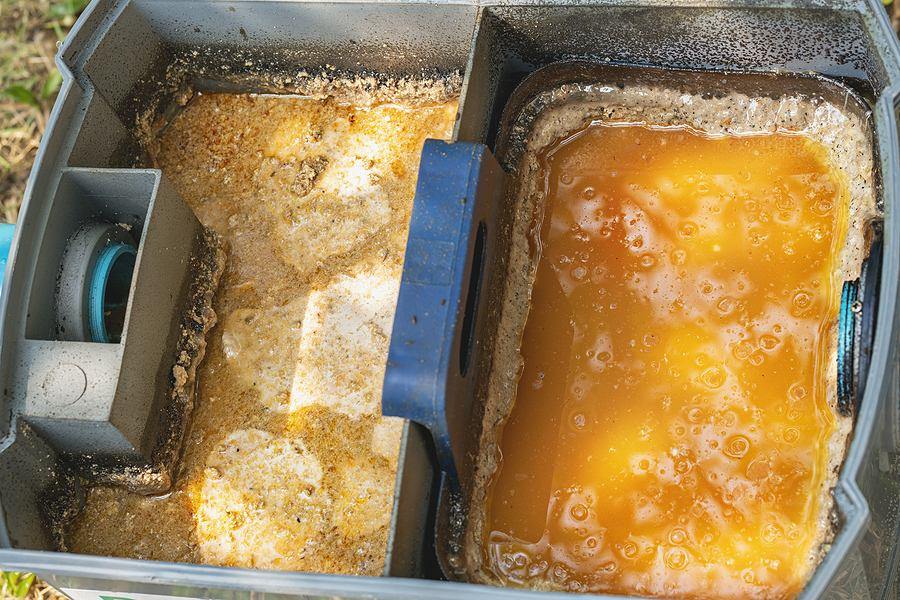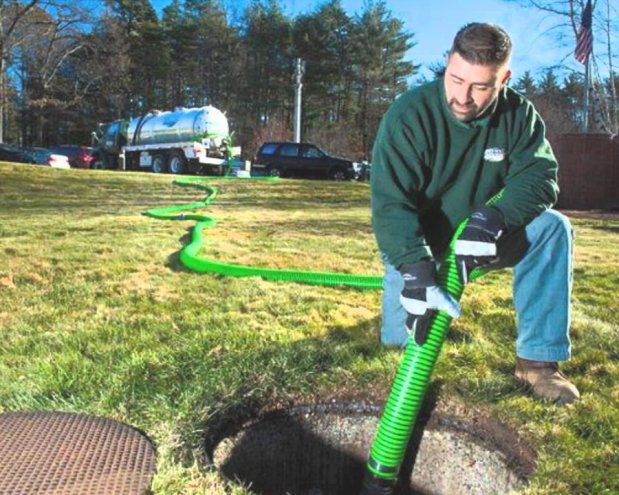
23
Grease traps are essential components of plumbing systems in commercial establishments, such as restaurants, cafeterias, and food processing facilities. They play a crucial role in preventing fats, oils, and grease (FOG) from entering the septic system. Regular grease trap cleanings are vital for maintaining the proper functioning of these traps and avoiding potential issues down the line.
Grease traps accumulate FOG over time, and without regular cleanings, these substances can solidify and create blockages. As a result, wastewater flow can be hindered, leading to backups and overflows. When the FOG reaches the septic tank, it can disrupt the natural breakdown process and compromise the tank's efficiency. Over time, this can lead to costly septic tank repairs or even complete system failure, requiring extensive septic tank installation.
By scheduling regular grease trap cleanings, septic companies can remove built-up FOG, ensuring the proper functioning of the trap. This proactive approach prevents potential damage to the septic system and saves businesses from expensive repairs. Similarly, scheduling septic tank pumping if you have a septic system helps remove build-up waste in your tanks as well. This strengthens your septic system and prevents the need for septic tank repair.
Businesses that fail to properly maintain their grease traps risk non-compliance with environmental regulations. Many municipalities have strict guidelines regarding FOG disposal and require regular cleanings to prevent FOG from entering the public sewer system. Failure to comply with these regulations can result in severe penalties, fines, or even the suspension of operating licenses.
By hiring a professional septic company for regular grease trap cleanings, businesses can ensure compliance with environmental regulations. These companies possess the necessary expertise to handle FOG waste properly, adhering to local guidelines and preventing any legal issues.
Neglecting regular grease trap cleanings can lead to an accumulation of FOG, food particles, and other debris. As these substances build up, they can impede the trap's effectiveness, causing it to become less efficient in capturing and separating grease from wastewater. Consequently, grease-laden water may flow into the septic system or municipal sewer lines, leading to further complications.
Regular grease trap cleanings remove the accumulated FOG and debris, restoring the trap's efficiency. This ensures that only properly treated wastewater enters the septic system or public sewer, reducing the chances of clogs, backups, and unpleasant odors in the facility. Maintaining a clean and odor-free environment is crucial for businesses to provide a pleasant experience for their customers and employees.
Proper grease trap maintenance extends beyond compliance and cost savings; it also contributes to environmental sustainability. When FOG enters water bodies, it can cause significant harm to aquatic ecosystems, leading to pollution, reduced oxygen levels, and the destruction of marine life.
By regularly cleaning grease traps, businesses prevent FOG from entering the environment. Grease trap waste can be disposed of responsibly, either through recycling or by partnering with specialized companies that properly treat and dispose of FOG waste. Taking these steps helps protect the environment, demonstrating a commitment to sustainability and responsible business practices.
Regular grease trap cleanings are crucial for several reasons. They prevent costly repairs and help avoid septic tank installation, ensure compliance with environmental regulations, enhance efficiency, reduce unpleasant odors, and promote sustainability. By scheduling regular cleanings with Charlotte Septic Pros, businesses can maintain a smoothly operating plumbing system, avoid legal issues, and contribute to a cleaner and healthier environment. Investing in regular grease trap maintenance and septic tank pumping is a proactive measure that pays off in the long run.

12
A single slow drain in your home can feel like a minor inconvenience. Maybe the sink takes a little longer…
Read more
05
Are Slow Drains a Septic Issue or Just a Clog? Slow drains are one of those household problems that start…
Read more
02
What Septic Service Techs See That Homeowners Miss Most homeowners only think about their septic system when something goes wrong.…
Read more
21
Simple Habits That Protect Your Septic System A well-functioning septic system does its job quietly, but the moment something goes…
Read more
14
Pump Now or Pay Later: The Real Cost of Skipping Maintenance A properly functioning septic system is easy to forget…
Read more
11
Why Your Septic System Always Acts Up at the Worst Time Homeowners often feel that septic problems strike at the…
Read more
04
Early Warning Signs Your Septic Tank Needs Pumping For homeowners who rely on a septic system, routine maintenance is not…
Read more
29
Why Does My Septic System Smell Fine One Day and Terrible the Next? If you own a home with a…
Read more
19
Is Your Septic System Overdue? Simple Home Checks You Can Do Today For many homeowners, the septic system is a…
Read more
13
5 Signs Your Septic Tank Is Overdue for Pumping Your septic system works quietly behind the scenes, managing wastewater from…
Read more